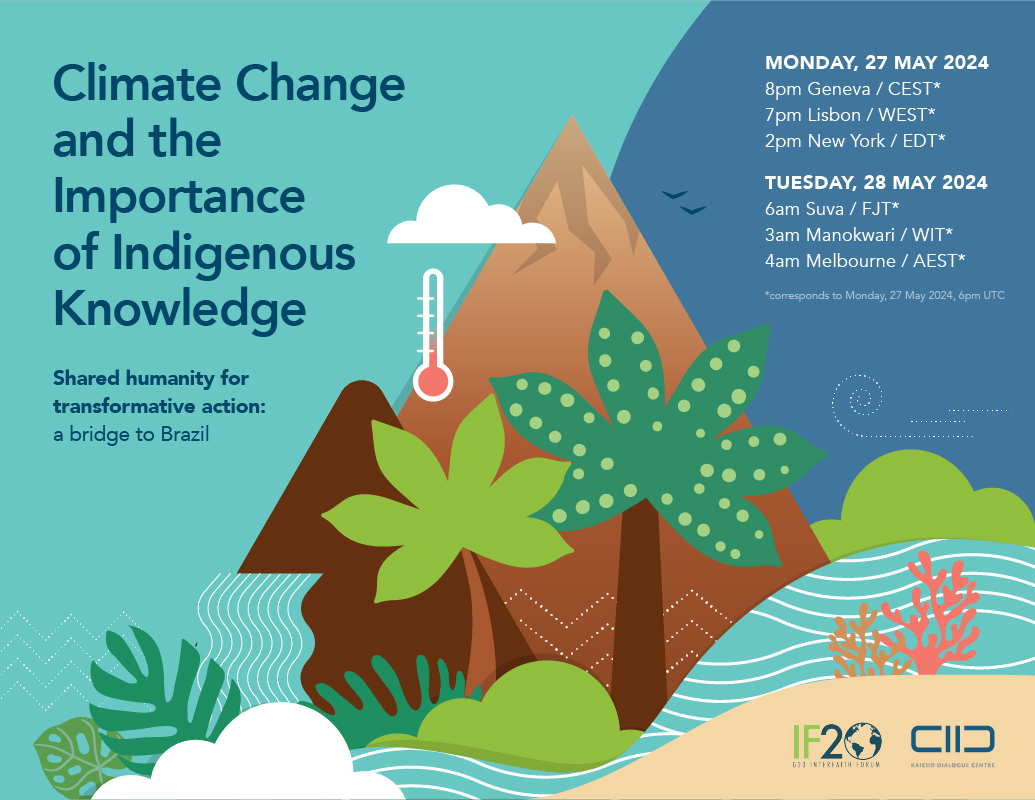
Climate Change and the Importance of Indigenous Knowledge
Shared humanity for transformative action:
a bridge to IF20 and G20 in Brazil
Webinar Monday 27 May 2024

REGISTER for the webinar at
https://us06web.zoom.us/webinar/register/WN_TaayxE39TS-qykKPbv18mw
The International Dialogue Centre KAICIID and the IF20 Environmental Working Group chaired by IEF President Arthur Dahl are facilitating a dialogue demonstrating how Indigenous and faith approaches to spirituality and well-being can help in the pursuit of climate justice.
This second webinar will be held on Monday, 27 May 2024 at the start of the 4th International Conference on Small Island Developing States, with their rich and diverse Indigenous cultures and islands that are uniquely and unfortunately positioned at the forefront of multiple global crises, notably climate change. It will also provide input to the climate track at the upcoming G20 Interfaith Forum on 19-22 August 2024 in Brazilia, Brazil.
This webinar is a follow up to a webinar held in October 2023 which opened new perspectives by examining climate change in the Pacific and giving examples of interfaith dialogue with Indigenous spiritualities promoting environmental justice (see REPORT HERE). It highlighted how Indigenous and Native knowledge and spiritualities can assist in critically informing national and global climate strategies and climate policies, most specifically looking into the radical approaches Indigenous communities could offer to the climate change meetings. At the end of 90 minutes of rich exchanges, it was agreed that the webinar had only touched the surface of important issues, and further dialogue was needed to explore in more depth how Indigenous knowledge can be preserved and drawn upon in the face of climate change and other development pressures.
REGISTER for the webinar at https://us06web.zoom.us/webinar/register/WN_TaayxE39TS-qykKPbv18mw

Last updated 26 April 2024
